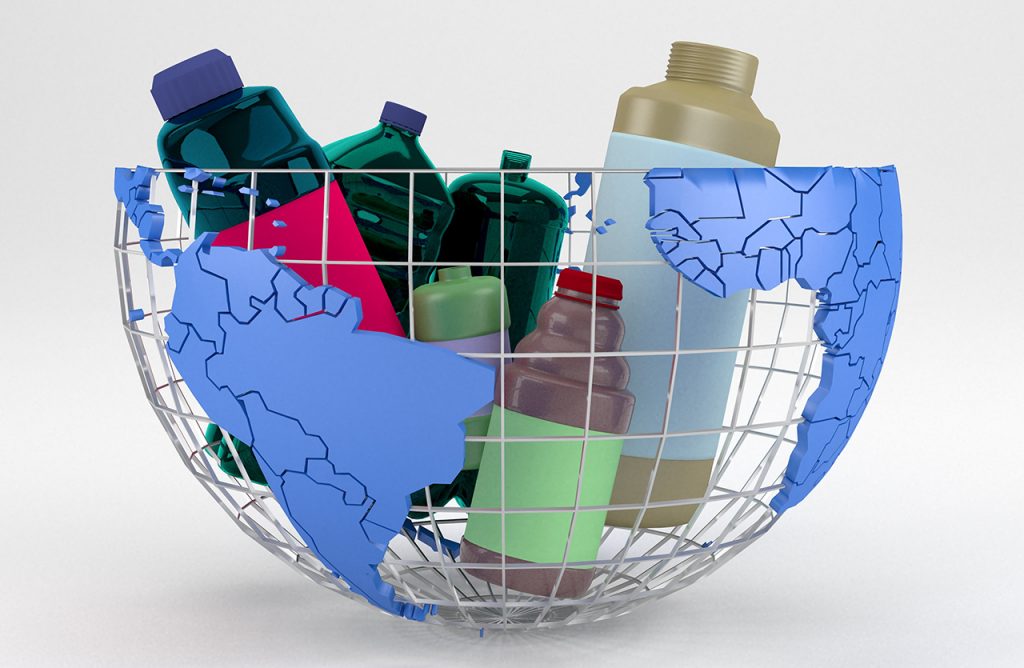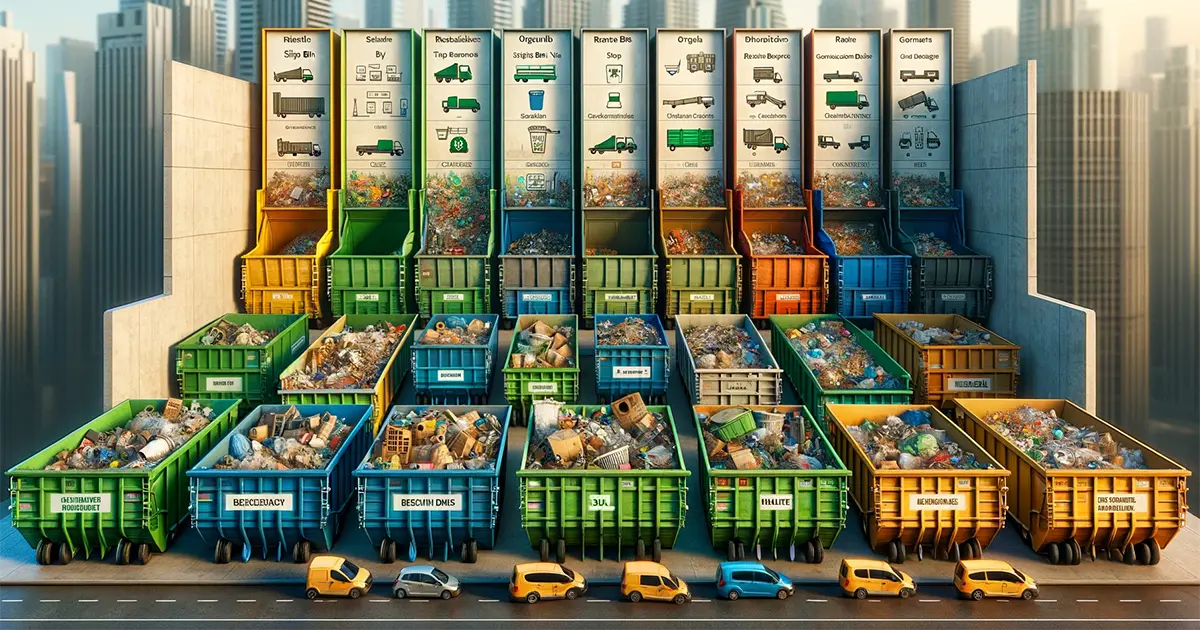
Recycling has become an important issue in Australia as the country strives to reduce waste and preserve the environment. With a current recycling rate of 50% and a goal to increase it to 70% by 2030, there are numerous initiatives and programs in place to support this cause. As a result, it’s crucial to understand the key to Australia recycling facts.
From the most commonly recycled materials to the impact of improper recycling practices, the following article will explore the most important Australia recycling facts and their significance in creating a more sustainable future. By increasing awareness and promoting sustainable practices, everyone can play a role in reducing waste and preserving the environment.
Recycling in Australia – The Current Status
Australia is one of the highest waste producers per capita globally, and recycling is critical to reducing the amount of waste sent to landfill. However, the current state of recycling in Australia faces challenges due to contamination, lack of consistent national recycling policies, and the collapse of the recycling export market. According to Australia recycling facts, in 2019-20, only 32% of household waste was recycled, with the rest sent to landfill.
In response, the government has announced funding for recycling initiatives and a plan to create a circular economy. While progress is being made, much work needs to be done to improve the state of recycling in Australia.
Benefits of Recycling in Australia
Recycling has numerous benefits, both for the environment and for society. Firstly, recycling helps reduce greenhouse gas emissions by reducing the amount of waste sent to landfills, where it releases methane, a potent greenhouse gas. Recycling also conserves natural resources, as it reduces the need to extract raw materials to produce new products.
This, in turn, conserves energy, as the production of recycled materials requires less energy compared to the production of new materials. In addition to the environmental benefits, recycling also has significant economic benefits. The recycling industry generates significant revenue, and it provides jobs to thousands of people in Australia.
The industry also contributes to the country’s economy by reducing the need to import raw materials and by increasing the production of recycled goods. Finally, recycling has social benefits, as it helps promote sustainable living and supports the development of communities. By reducing waste and conserving natural resources, recycling helps to create a more sustainable future for generations to come.
Types of Recycling in Australia
In Australia, recycling is carried out at different levels, including:
- Household
Household recycling involves the collection of recyclable materials from households, such as:- Paper
- Glass
- Plastic
- Commercial
Commercial recycling involves the collection of recyclable materials from businesses, including:- Paper
- Cardboard
- Electronic waste
- Industrial
Industrial recycling involves the collection and processing of industrial waste, including:- Scrap metal
- Construction waste
- Electronic waste
Key Players in the Australian Recycling Industry
The Australian recycling industry is a combination of government initiatives, private sector organisations, and community groups and non-profits. The government is responsible for setting policies and regulations to promote recycling and reducing waste. Private sector organisations are involved in the collection, processing, and manufacture of recycled products. Community groups and non-profits play a significant role in raising public awareness about recycling and promoting sustainable living.
Challenges to Recycling in Australia
Australia, like many other countries, faces several challenges in its efforts to recycle. Some of the biggest challenges include:
- Lack of Infrastructure
Despite the efforts of the government and private sector, there is a lack of recycling infrastructure in many regions of Australia, making it difficult for residents to recycle properly. This can lead to recyclable materials being sent to landfills, instead of being processed and reused. - Limited Public Awareness and Education
The general public needs to be educated on the importance of recycling, and how it can play a role in reducing the amount of waste generated. This will help encourage more people to participate in household recycling and to properly dispose of recyclable materials. - Economic Barriers
Recycling can be an expensive process, and without proper funding and support, it can be difficult to establish and maintain a successful recycling program. This can also create a disincentive for companies to invest in recycling efforts, especially in regions where the cost of collection and processing is high.
Success Stories of Recycling in Australia
Despite these challenges, there have been several successes in the recycling industry in Australia. These include:
Local Government Initiatives
Many local governments have implemented successful recycling programs, and have invested in the infrastructure necessary to support them. This has helped to increase the number of recyclable materials that are being collected and processed and has encouraged more residents to participate.
Private Sector Success Stories
Companies and organisations in the private sector have also played a significant role in promoting recycling. For example, some companies have implemented programs to reduce the amount of waste generated in their operations, and have invested in recycling technologies.
Community Initiatives
Community groups and non-profits have also played an important role in promoting recycling in Australia. These organisations often work with local governments and the private sector to organise events and campaigns that educate the public on the importance of recycling and encourage them to participate.
Future of Recycling in Australia
The future of recycling in Australia looks promising, with several initiatives underway to improve the recycling industry and increase the amount of waste being recycled. These include:
- Government Plans and Goals
The government has set a goal to reach 100% recycling by the year 2050 and has implemented several plans and initiatives to support this goal. This includes investment in infrastructure and education programs, as well as support for the recycling industry. - Technological Advancements
Technological advancements are also making recycling more efficient and effective. For example, new technologies are being developed to help sort and process recyclable materials more efficiently, and to create higher-quality recycled products. - Community Involvement and Activism
Finally, community involvement and activism are playing an increasingly important role in promoting recycling in Australia. As more people become aware of the importance of recycling, and the impact that it can have on the environment, there is a growing movement to promote recycling and support sustainable practices.
15 Must-Know Facts About Recycling in Australia
Recycling has become an integral part of Australia’s efforts to reduce waste and preserve the environment. Here are 15 must-know facts about recycling in Australia:
- Australia recycles about 50% of its municipal waste.
- The most commonly recycled materials are paper, cardboard, glass, and plastic.
- The National Waste Policy aims to increase the recycling rate to 70% by 2030.
- Each person in Australia generates approximately 2.7 kilograms of waste per day.
- Recycling saves energy, reduces greenhouse gas emissions, and conserves natural resources.
- There are over 1,000 recycling facilities across Australia.
- E-waste, including old computers and mobile phones, is one of the fastest-growing waste streams in the country.
- Plastic shopping bags can take up to 1,000 years to break down in the environment.
- Soft plastics, such as bread bags, can be recycled through the REDcycle program.
- Recycling creates jobs and supports local economies.
- The Container Deposit Scheme in South Australia has helped to recover over 1.25 billion drink containers.
- Recycled materials are used to make new products, such as:
- Paper
- Building materials
- Clothing
- Improper recycling practices can contaminate recyclable materials and harm the environment.
- Households can recycle a range of items, including:
- Batteries
- Light bulbs
- Cooking oil
- By making small changes, such as using reusable bags and properly disposing of waste, individuals can play a significant role in reducing waste and preserving the environment.
In conclusion, recycling is essential for preserving the environment and reducing waste in Australia. By increasing awareness and promoting sustainable practices, we can continue to make progress towards a more sustainable future.
Join the Recycling Movement with 1300 Skip Bin Hire for Your Home
It’s time to join the recycling revolution and make a positive impact on the environment. By choosing 1300 Skip Bin Hire for your residential bin hire, you can play an important role in reducing waste and preserving the environment. Our team provides affordable and convenient bin hire services to make it easy for you to properly dispose of your waste.
From paper and cardboard to glass and plastic, we handle a wide range of recyclable materials. Our commitment to sustainable practices ensures that your waste is properly sorted and recycled, reducing the amount of waste that ends up in landfills. Make a difference today and choose 1300 Skip Bin Hire for your residential waste management needs.
Together, we can create a more sustainable future.

